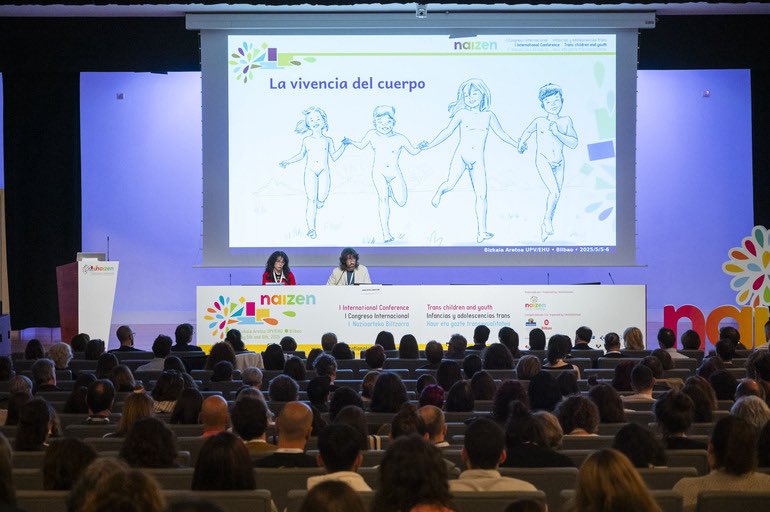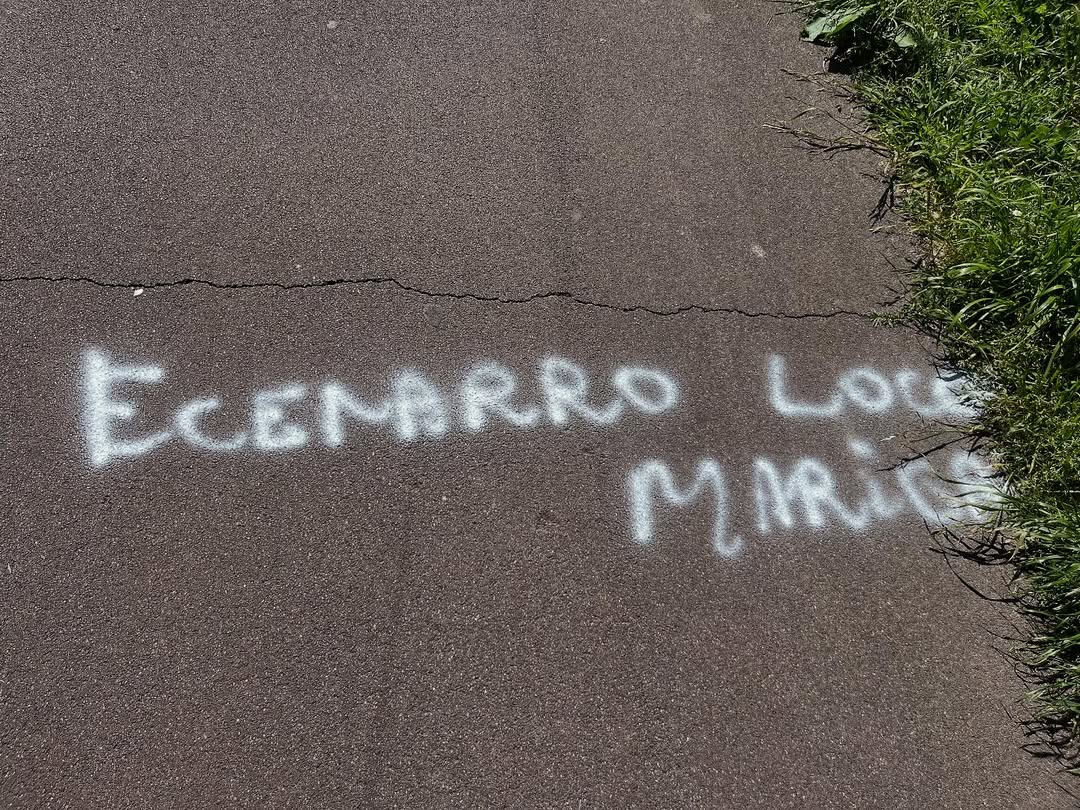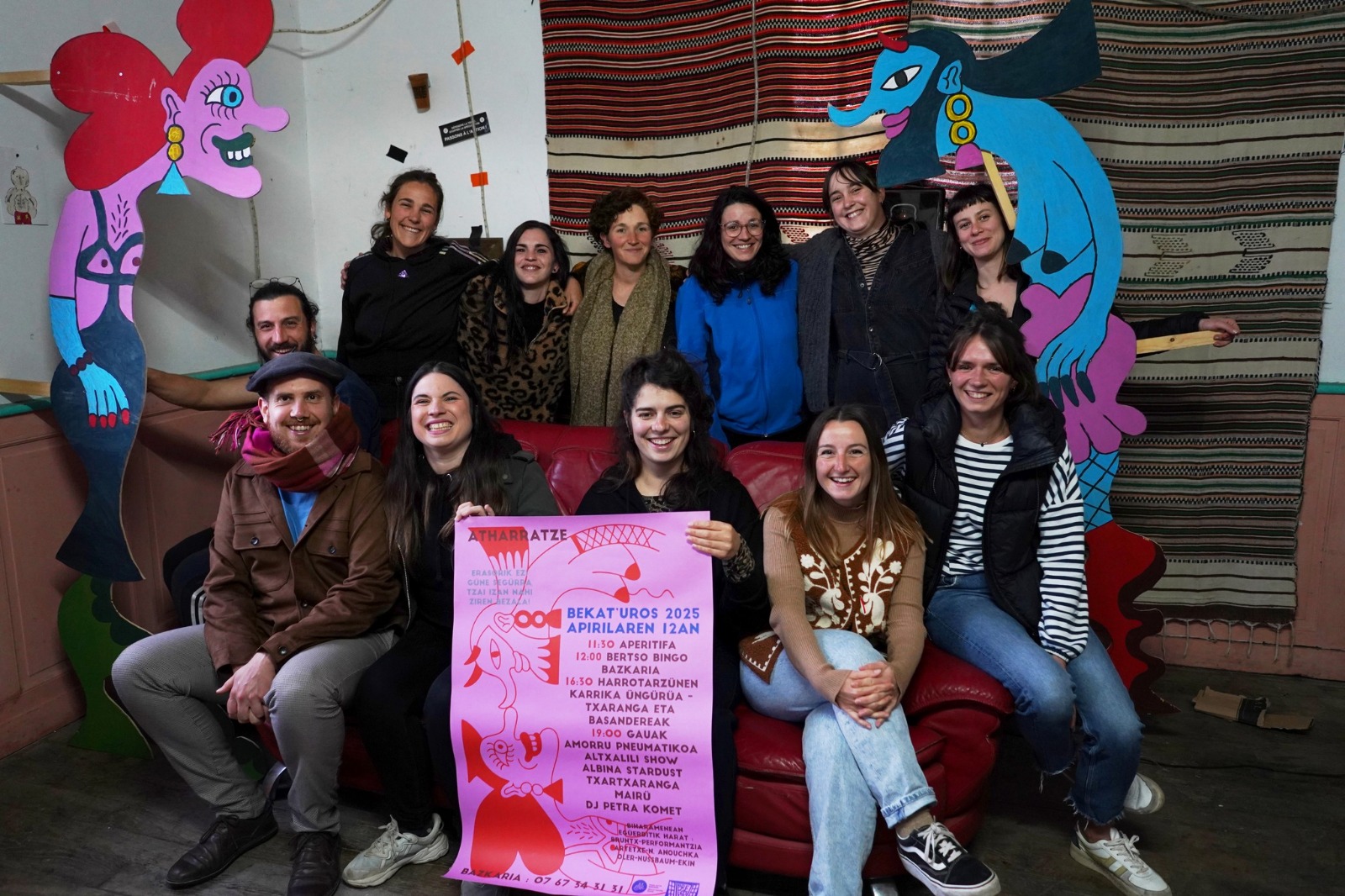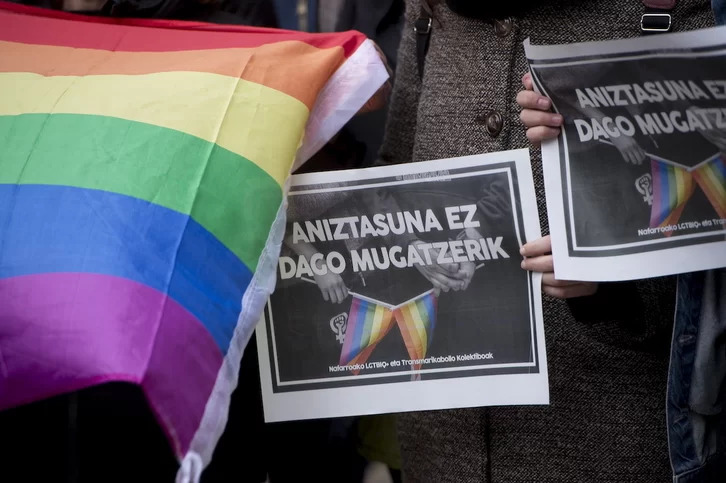Political movement to live sex freely
- The Kitzikan youth organization has been set up early this year. It brings together sexuality and political action. Against the heteropatriarchate, they want to regain the radical political attitude of the past. The work, which has begun to work in counties, aims to extend the activity to the whole of the Basque Country.
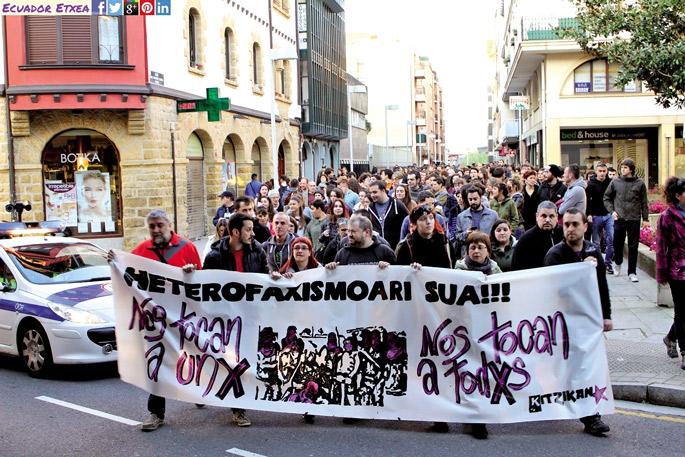
The youth organization Kitzikan was introduced on 31 January. Dozens of people gathered at the gaztetxe of Bergara (Gipuzkoa). Among the individuals and groups invited were the LAB union, Euskal Herriko Bilgune Feminist, the feminist group Medeak and Ernai. They're called young, but they don't look at age, what they want to highlight is the youth spirit. This is a project being worked on in Araba, Bizkaia and Gipuzkoa. They have been organized by districts and the groups have been formed in Donostia-San Sebastian, Vitoria-Gasteiz, Bilbao, Left Margin and Uribe-Kosta, among other places. The Regional Boards will act autonomously above the overall structure.
1969 in memory
They say they want to reclaim the roots of the beginning of the sexual liberation movement. The beginning was in 1969, in New York (USA), during the disturbances that have occurred in the famous Stonewall bar. Sex workers, transsexuals, transvestites and homosexuals faced the police, and the revolt lasted several days.
According to some, that explosion did not last long. In the 1980s, there was a rupture in the sexual liberation movement and the queer movement was unleashed. This thinking goes beyond LGBT ideology, encompassing sexual minorities that go beyond heterosexuality, heteronormativity and the woman-man binomial. According to the Queer discourse, the spirit of 1969 was lost and the heterosexual model was devoured. Kitzikan does not consider himself a queer movement, has not taken any denomination, but it is located very close to that movement.
According to Ekaitz Herrero, a member of Kitzikan, in recent years there have been other events to take into account: “The economic crisis began in 2006; the sexual liberation movement was trying to resettle; and local problems have arisen in Ukraine as a result of the Arab Spring in Turkey, etc.” Herrero has overseen the movement generated internationally in recent years: The Kaos GL of Russia and Ukraine, the queer movement for racism in the United States. The US, the intifada queer in Turkey, also in Palestine ...
In this context, Kitzika was born with the objective of recovering a radical political position against the heteropatriarchal system.
Asked whether in the
Basque Country there are movements like those Kitzikan wants to fill the gap, Herrero replied: “Taking into account the sociopolitical situation of Euskal Herria, the way of organizing and fighting, the critical conscience, there have been more movements than in many other places, and in them, also in sexual liberation, the ways of doing have been more coherent. At least in that principle yes.” Herrero represents the most radical, more political, less close to the centers of power movement in the Basque Country. EHGAM has set an example. He believes that he is still quite close to those initial demands. However, he believes that after the boom, an aging or relaxation occurs, and that the movements are not strong and unable to fulfill their desires.
Should we celebrate Day Against Homophobia?
In 1990, the World Health Organization removed homosexuality from the International Classification of Diseases. Based on this decision, the International Day against Homophobia was prepared. It was first held on 17 May 2005. In his view, it is not necessary to celebrate the fact that global organizations have removed homosexuality from the list of mental illnesses. Herrero has questioned him that the same people who organize May 17 do not question that transsexuality is on the same list: “Transsexuality questions the regime of heterosexuality, not only are men and women, but a third person is claimed.” If so, they will take advantage of the Day Against Homophobia to remember that there are still many stocks and practices that are considered diseases.
On 28 June yes
The LGBT movement (Lesbian, Gay, Bisexual and Transgender) confirms June 28 as Sexual Liberation Day. For the Kitzikan member, this day is very important for the movement: On 28 June 1969, before the heteropatriarchal system, on that occasion, before the police, they decided not to submit. Mr Herrero added that unfortunately it was also possible to depoliticise that day, and that it has become a showcase full of bars and businesses. But not in the Basque Country. This is still a day of struggle and reclaiming. n
Errepikatu nirekin: Sara Millerey. Ez dezagun ahaztu bere izena. Transfeminizidioaren biktima da Millerey: gorrototzaile transmisogino batek torturatu zuen, besoak moztu zizkion eta bizirik bota zuen ibaiertz batera. Bi orduko agoniaren ondoren hil zen.
Errazagoa da J.K... [+]
Transfeminism has brought clarity and complexity to discussions about bodies, genders and desires. It also created shadows. In the name of a supposed radical political coherence – often linked to a very specific hegemony – some transfeminist discourses reproduce logics of... [+]
The Leioa School of Education was full of students last Wednesday because Samantha Hudson was coming. She is a transgender Mallorcan artist, singer and influencer born in 1999. The star of the People Singing Encounters had an endless line to give selfies and autographs, and his... [+]
Bilbo, 1954. Hiriko Alfer eta Gaizkileen Auzitegia homosexualen aurka jazartzen hasi zen, erregimen frankistak izen bereko legea (Ley de Vagos y Maleantes, 1933) espresuki horretarako egokitu ondoren. Frankismoak homosexualen aurka egiten zuen lehenago ere, eta 1970ean legea... [+]
"Pornografiaren aurrean nola esku hartu. IKTen erabilera nerabeen eta gazteen sexualitateen arretan: errealitateak eta aukerak" ikastaroa emango du Ane Ortiz Ballesterosek (1989, Bilbo). Sexologoa da bera, Training sexologia klinikoan, Genero Berdintasun Teknikaria eta... [+]
1984an ‘Bizitza Nola Badoan’ lehen poema liburua (Maiatz) argitaratu zuenetik hainbat poema-liburu, narrazio eta eleberri argitaratu ditu Itxaro Borda idazleak. 2024an argitaratu zuen azken lana, ‘Itzalen tektonika’ (SUSA), eta egunero zutabea idazten du... [+]
La bajona kolektibo kide Heiko Elbirak salatu du psikiatriak zisheteroarautik aldentzen diren erotikak kontrolatu nahi dituela.











